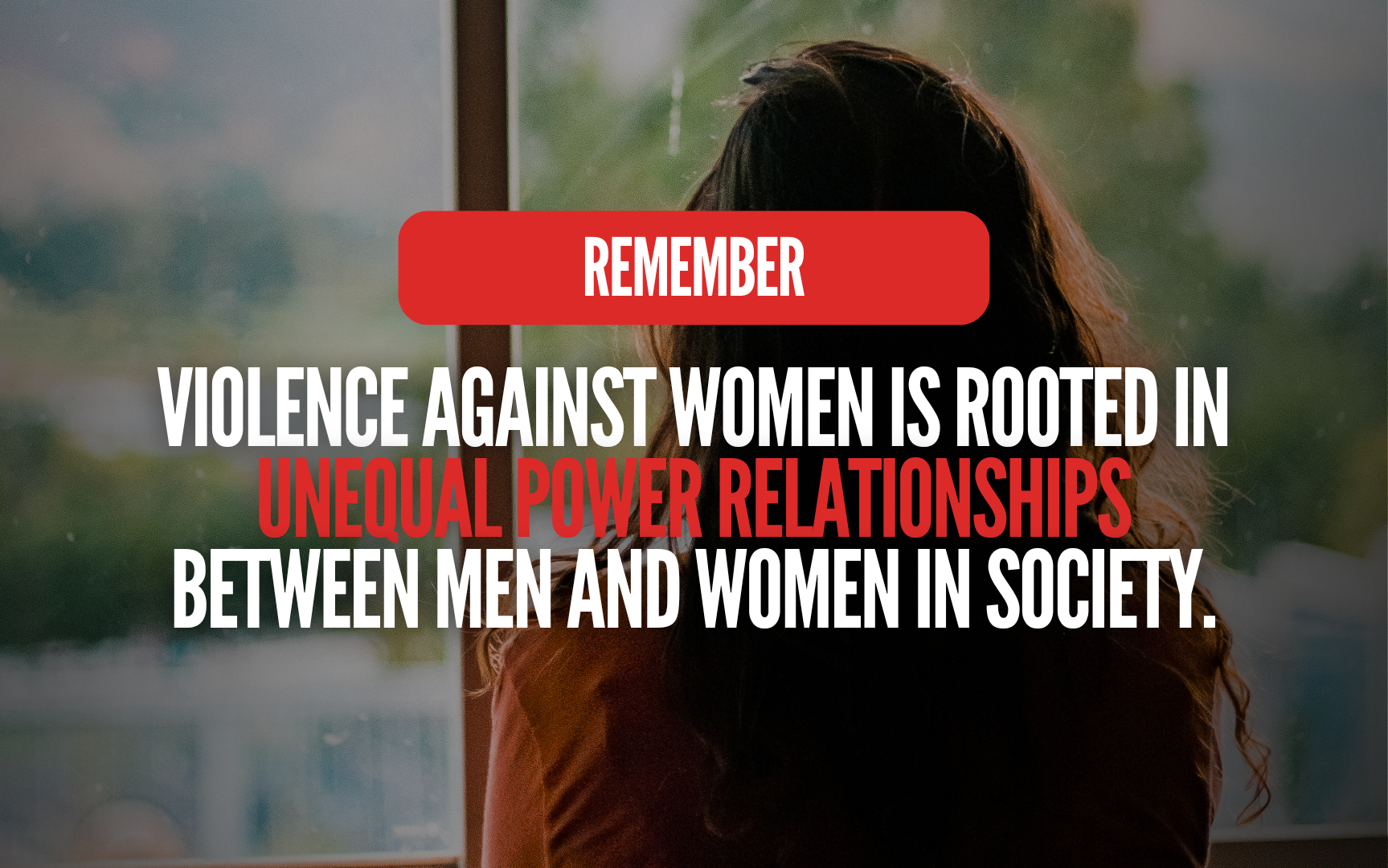
As Prevention of Violence Against Women Week draws to a close, it’s crucial to remember that our work doesn’t stop here. Violence against women is deeply ingrained in societies worldwide, perpetuated by systems of male dominance and privilege.
What are the Roots of Violence Against Women?
Violence against women is rooted in unequal power relationships between men and women in society. In a broader context, structural relationships of inequalities in politics, religion, media and discriminatory cultural norms perpetuate violence against girls and women.
Violence against women is a global problem and not limited to a specific group of women in society. However, the forms of violence might be shaped differently based on factors such as sexual orientation, religion, ethnicity, class, age, nationality. Significantly, Immigrant and Aboriginal women are further marginalized due to ongoing racism, which contributes to violence and is internalized by marginalized people impeding their social and personal power. Poverty, isolation from family and friends, language difficulties, and homelessness also contribute to the victimization of the most vulnerable women in society.
In a male-dominant society, male privilege becomes the norm and contributes to the belief and behaviour of men that they have the right to control women
How you can bring an End to Violence Against Women?
The Role of Individuals
Each and every individual has the power to eradicate violence against girls and women by supporting and empowering one woman. There is a need for immediate action of individuals in society. It’s time to end this outrage and create a society where our mothers, sisters, aunts, nieces, daughters and partners are valued, safe, and empowered.
As individuals, being aware of violence against girls and women and exploring how we can use our power to end violence against girls and women can make a lasting difference.
For decades, the system has been changed by movements and their advocacy work. As individuals, we can be part of a solution by joining and advocating in the anti-violence movement.
Volunteering and supporting women’s organization allow them to continue their services for women, who experience abuse or violence, and to do more.
Supporting violence prevention programs especially in high schools increases the ability of youth to recognize violence, transform their knowledge into action against violence, and contributes to changing systems to aid rather than impede an end to violence against girls and women.
The Role of Society
Violence against women is the most pervasive yet least recognized human rights abuse in the world. Women and girls are victimized in our society in ways that threaten their physical, emotional, psychological and sexual well-being.
Society has a responsibility to pursue a socio-cultural framework that is rooted in equality and justice for women, which is supported by a legal system that holds perpetrators accountable for their actions.
From the perspective of our government, our own constitutional philosophy of assumed equality has rejected outright the idea that women are abused simply because they are women. This allows government and judicial systems to openly avoid challenging or addressing underlying social issues and works to conceal their complicity with a socio-cultural system that largely condones and tolerates violence against women. The society has a critical role to stop any political and legal action that contributes to further oppression of women and allow for sanctions against perpetrators that are minimal or simply not enforced.
As we conclude Prevention of Violence Against Women Week, we extend an invitation to join BWSS in our ongoing efforts to release resources and take action towards violence prevention. Follow us at @endingviolence and visit bwss.org for more information and ways to get involved. Together, let’s continue striving for a safer and more equitable future for women and girls.
If you or someone you love is in need of support, please contact the Battered Women Support Services at Crisis Line:
Call toll-free: 1-855-687-1868
Metro Vancouver: 604-687-1867




